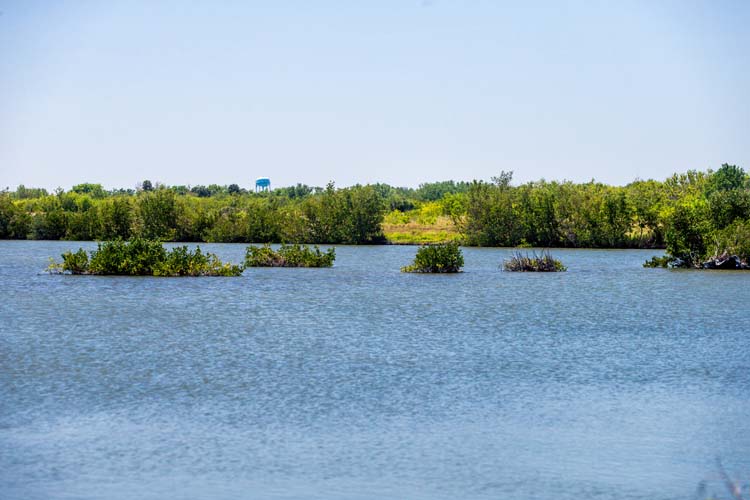
The County Commission last week cleared the way for development of a huge new Grand Harbor subdivision of nearly 900 single-family and multifamily homes built in a serpentine layout amid a manmade saltwater marsh and system of waterways designed to help clean up the Indian River Lagoon.
As part of the project, three quarters of a mile of raised boardwalk will be constructed that will allow nature lovers to walk deep into the mangroves behind the new development.
“This is an incredible, gutsy, cutting-edge project,” County Commissioner Bob Solari told the developer’s representative at the Jan. 22 commission meeting. “It will become a destination point for a lot of people. It’s the most impressive project I’ve seen as a county commissioner. I want to applaud your effort. It will be a tremendous benefit for the whole community.”
At the meeting, commissioners approved rezoning a 413-acre tract north of 53rd Street from residential to Planned Development, a designation that gives developers more flexibility in designing a new community, in this case clustering buildings to create more open green space.
The environmentally innovative subdivision, known as Spoonbill Reserve, will be developed by Grand Harbor North Land LLC on acreage that lies between U.S. 1 and the Indian River Lagoon, and between 63rd Street in the north and 53rd Street to the south.
According to a preliminary plan submitted to the county, the site incorporates the adjacent 67-acre Spoonbill Marsh, a manmade water treatment facility operated by the county since 2008 under a 100-year lease agreement on land owned by Grand Harbor.
About 12 million gallons a day of lagoon water will be pumped into the subdivision marsh, where aquatic plants will absorb nutrients and filter pollutants, cleansing the water before it is discharged back into the waterway.
The new flow-way will clean six times as much lagoon water as the existing facility, while simultaneously creating a scenic habitat for wildlife and enhancing the aesthetics of the subdivision.
Masteller & Moler engineering firm prepared the preliminary plan and Steve Moler is the developer’s representative on the project. He has shepherded the plan through the approval process so far, securing needed permits from St. Johns Water Management District and the Florida Department of Transportation.
“We waited until we got the permits before going to the county [for the zoning change],” Moler said. “Instead of simply professing we are doing something great for the environment, we can say the plan is already approved. It put us in a better position with the county – it’s not just a dream, it’s a reality.”
Moler said a permit from the U.S. Army Corps of Engineers is forthcoming.
Chip Swindell, owner and principal engineer of Ecotech Consultants, is designing the saltwater marsh and flow-way. He also designed Spoonbill Marsh for the county.
Both Moler and Swindell said former Grand Harbor general manager Chris Cleary spearheaded the environmentally-conscious subdivision, though he has since left that job and is no longer involved with the project.
“Chris Cleary is a very smart guy and very intuitive and very interested in the environment,” Swindell said. “When he saw how well Spoonbill Marsh turned out as a wildlife refuge and water treatment facility, he asked me to design a water-based community.
“We can simulate the tidal cycle inside the marsh,” Swindell said, “raising the water from a few inches to a foot and a half, simulating what’s happening naturally in the river. It will take nutrients out and alter the salinity.”
Moler said the project has been “about five years in the making.”
The next step will be to develop and seek county approval for a more detailed site plan. No timeframe for when site work will begin was provided.



